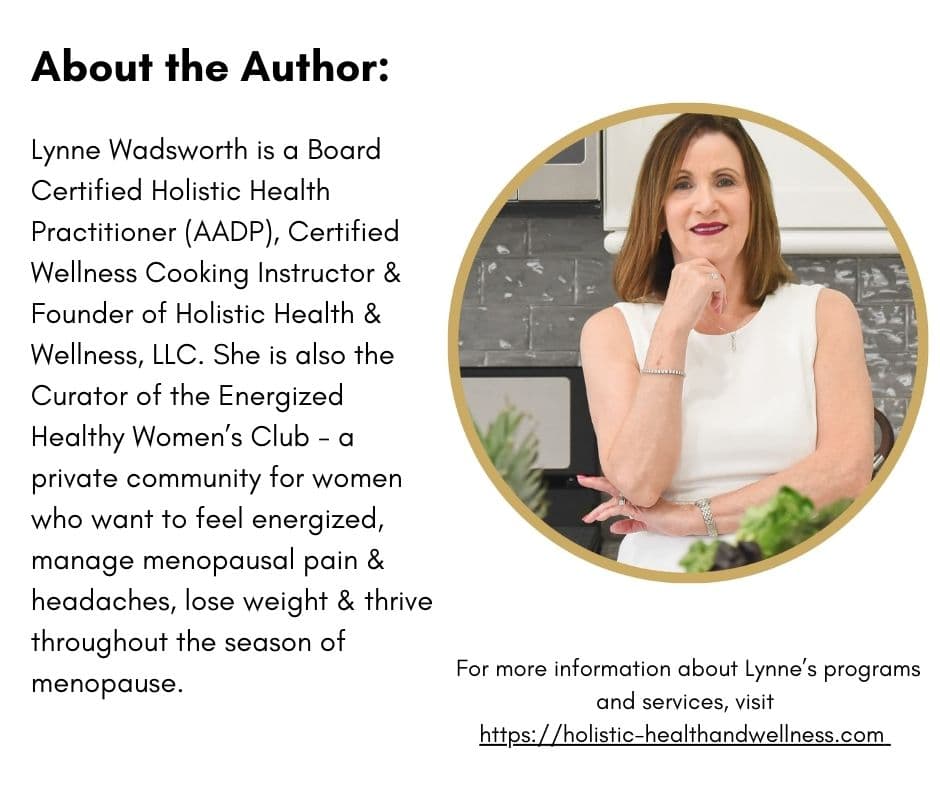Inflammation is a buzzword in the wellness world—but what does it really mean for your health? While acute inflammation is the body’s natural way of healing, chronic inflammation can quietly sabotage your energy, mood, weight, and overall wellbeing.
In this blog, we’re taking a deep dive into inflammation—what it is, why it matters, and how holistic, anti-inflammatory strategies can help you feel your best. This blog gives you the big picture overview, setting the stage for more in-depth solutions we’ll explore in the weeks ahead in the Energized Healthy Women’s Club.
What Is Inflammation, Really?
Inflammation is your immune system’s first response to injury, infection, or stress. Think of it as a healing team rushing in to fix a cut, fight a virus, or clean up damage.
There are two types of inflammation:
• Acute inflammation – short-term, targeted, and necessary for healing.
• Chronic inflammation – long-term, low-level, and harmful to your health over time.
Signs of Chronic Inflammation may Include:
- Fatigue
- Brain fog
- Digestive issues
- Bloating
- Joint pain
- Mood swings
- Skin issues
- Weight gain
- Sleep disturbances
As we move through midlife and hormones shift, the body can become even more sensitive to inflammation, making it a critical piece of the health puzzle.
Common Causes of Chronic Inflammation
Chronic inflammation often stems from lifestyle habits, environment, and internal imbalances. Some of the most common culprits include:
- Processed and sugary foods
- Chronic stress
- Sedentary lifestyle
- Toxin exposure (from food, air, water, or products)
- Gut imbalances
- Sleep issues
- Hormonal fluctuations
This kind of inflammation can be both a symptom and a root cause of many chronic conditions. That’s why a holistic, whole-person approach is key to lasting healing.
The Power of a Holistic Anti-Inflammatory Lifestyle
Holistic wellness means addressing all aspects of who you are—mind, body, and spirit—to create balance and reduce stress and inflammation from the inside out.
Let’s look at the foundational pillars of a holistic anti-inflammatory approach:
1. Eat for Better Health, Not Harm

Your daily meals can either fight inflammation—or feed it.
Anti-Inflammatory Foods to Focus On:
- Leafy greens and colorful vegetables
- Berries, citrus, apples, and other fruits
- Healthy fats (olive oil, avocados, flaxseeds, wild salmon)
- Herbs and spices (especially turmeric, ginger, and garlic)
- Fermented foods for gut health (like yogurt, kefir, and sauerkraut)
- Green tea and herbal infusions
Foods to Limit or Avoid:
- Processed foods and snacks
- Refined sugars and carbs
- Hydrogenated and processed oils
- Artificial additives and preservatives
2. Move Your Body with Purpose and Pleasure

Physical activity reduces inflammation and boosts circulation, immunity, and hormone balance. The good news? You don’t need high-intensity workouts to see benefits.
Gentle, Consistent Movement Options:
- Walking
- Yoga or stretching
- Dancing
- Swimming
- Tai chi or Pilates
- Light strength training
Choose movement that makes you feel energized, not drained.
3. Reduce Stress with Mind-Body Practices

Stress fuels inflammation by keeping your cortisol levels high. Holistic stress management helps calm the nervous system and supports whole-body healing.
Supportive Tools for Stress Relief:
- Deep breathing or meditation
- Journaling or gratitude practice Nature walks
- Epsom salt baths
- Prayer or spiritual connection
- Laughter and play
Even a few minutes a day of intentional calm can make a big difference.
4. Prioritize Restorative, Quality Sleep

Sleep is when your body detoxifies, heals, and balances hormones. Without it, inflammation increases and energy tanks.
Tips for Better Sleep:
- Stick to a regular bedtime and wake-up time
- Limit screens and blue light before bed
- Create a calm, cool, and dark sleep space
- Avoid caffeine in the afternoon
- Try calming teas like chamomile or lemon balm
5. Detox Gently and Naturally
We’re surrounded by environmental toxins that can overload the liver and trigger inflammation. You don’t need a harsh cleanse—just daily support.
Daily Detox Practices:
- Drink plenty of water
- Eat fiber-rich veggies and fruits
- Sweat (through exercise or sauna)
- Dry brushing or lymphatic massage
- Use clean, non-toxic personal care and cleaning products
6. Balance Hormones Naturally
Hormonal shifts in perimenopause and menopause can fuel inflammation, especially when estrogen (which has anti-inflammatory effects) begins to drop.
Supportive Hormone-Balancing Strategies:
- Eat healthy fats and protein
- Manage blood sugar
- Lower stress
- Support gut health
- Consider adaptogens or guided use of natural hormones
More on this topic coming later this month in the Energized Healthy Women’s Club!
7. Nurture a Resilient Mindset

Your mindset shapes your health. Negative thought patterns, unresolved emotional stress, and a lack of self-care can all keep inflammation alive.
Choose to shift into a place of wellbeing and hope, and trust in your body’s wisdom. Practices like affirmations, visualization, therapy, and community connection can all support your emotional and physical wellness.
Final Thoughts: Start Where You Are
Chronic inflammation can feel overwhelming—but the truth is, small, consistent choices can create powerful change. You don’t need to overhaul everything overnight. Pick one area—food, movement, sleep, stress, or mindset—and begin there.
You are not meant to feel tired, foggy, puffy, or inflamed. Your body is designed to heal—especially when given the right support.
Looking for a help and support with inflammation? Let’s chat. Book a 20-minute consultation call with me and let’s get healthier.




